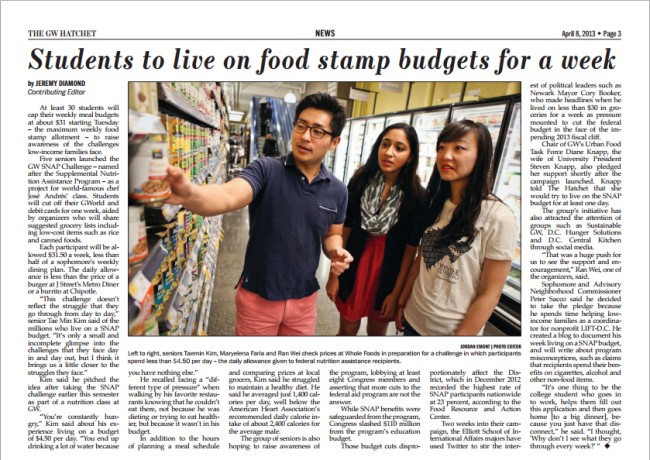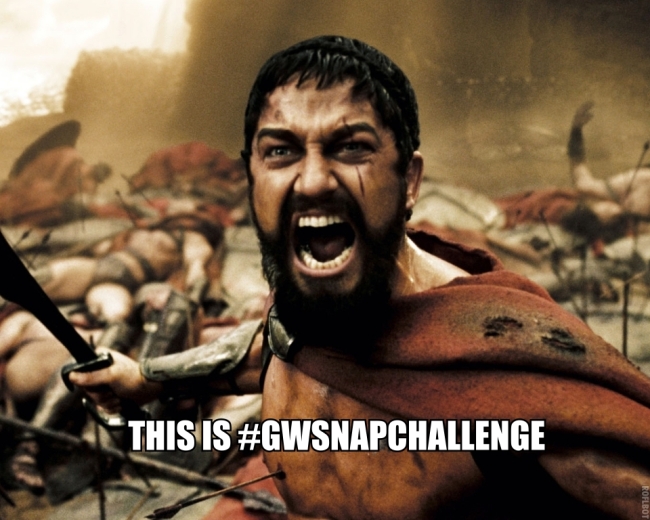What does it mean to cut the SNAP budget?
With the various budget crises in congress as well as the delay on the reauthorization of the Farm Bill, there have been many fiscally conservative congressman that have advocated for the cutting of the SNAP budget.
If you don’t want to read the post here are takeaways:
1. Don’t Cut Snap Funding
2. SNAP isn’t wasteful
3. Snap is projected not to add to the national budget in the long term.
Below is a summary from a fantastic analysis done by Dottie Rosenbaum and the Center on Budget and Policy Priorities.
House Budget Committee Chairman Paul Ryan (Wisconsin) has proposed a budget which cuts the food stamp program by 135 billion in the next 10 years. Let’s for a moment entertain the notion that this budget has feasibility. What would it mean for the people who are on SNAP?
90% of the SNAP budget goes directly to providing food assistance for low-income households. The remaining 10% goes into administrative costs such as determining who gets food stamp benefits, operations etc… The budget proposes a 2 tier cut with 125 billion in cuts happening from 2019-2023 (34% of the current SNAP funding) and the rest over the next 5 years. This would mean that 12-13million people currently on the program would need to be cut, and Snap benefits would have to be cut by 50$ per person per month!
Those of you on the SNAP challenge know it’s already a struggle living off 31.50 a week, but under this budget plan your benefit would be cut by 12.50 leaving only a 19.00 a week allowance! Furthermore, this would mean SNAP benefits would only cover 73% of the USDA guidelines for the Thrifty Food Plan (A USDA estimate of the minimum amount of food a family needs)
SO WTF?
Let’s discuss a few key assumptions this budget rests upon.
1. SNAP is facing a budget crunch and contributes to the nation’s long term debt.
It’s true SNAP grew during the recession but this growth is temporary and merely a reflection of the state of the US economy as a whole. The recent growth has already slowed and initially grew because of: the recession, improvements in the program to reach eligible families, and the Recovery Act’s temporary boost”
Furthermore, the program won’t increase the nation’s debt because its projected not to grow any faster than the economy over time. (Source Congressional Budget Office)
2. SNAP recipients do not have a strong work ethic.
The center on Budget and Policy priorities found that a large majority of SNAP recipients who can work, work. “Among SNAP households with at least one working-age, non-disabled adult, more than half work while receiving SNAP — and more than 80 percent work in the year prior to or the year after receiving SNAP. The rates are even higher for families with children — more than 60 percent work while receiving SNAP, and almost 90 percent work in the prior or subsequent year. Among SNAP households that start receiving SNAP, only 4 percent that worked in the year before starting to receive SNAP did not work in the following year. The number of SNAP recipients who work while receiving SNAP has more than tripled over the past decade.
3. Snap is wasteful, filled with fraud and abuse.
“SNAP has one of the most rigorous quality control systems of any public benefit program. Despite the recent growth in caseloads, the share of total SNAP payments that represent overpayments or payments to ineligible households reached a record low of 2.99 percent in fiscal year 2011. In addition, the Agriculture Department (USDA) has cut “trafficking” — the sale of SNAP benefits for cash, which violates federal law — by three-quarters over the past 15 years. Only 1 percent of SNAP benefits is trafficked. USDA has also permanently disqualified thousands of retail stores from the program for not following federal requirements. When cases of SNAP fraud are reported in the news, it is because the offenders have been caught, evidence that states and USDA are aggressively combating fraud.”
Adapted from: http://www.cbpp.org/cms/?fa=view&id=3923



Recent Comments